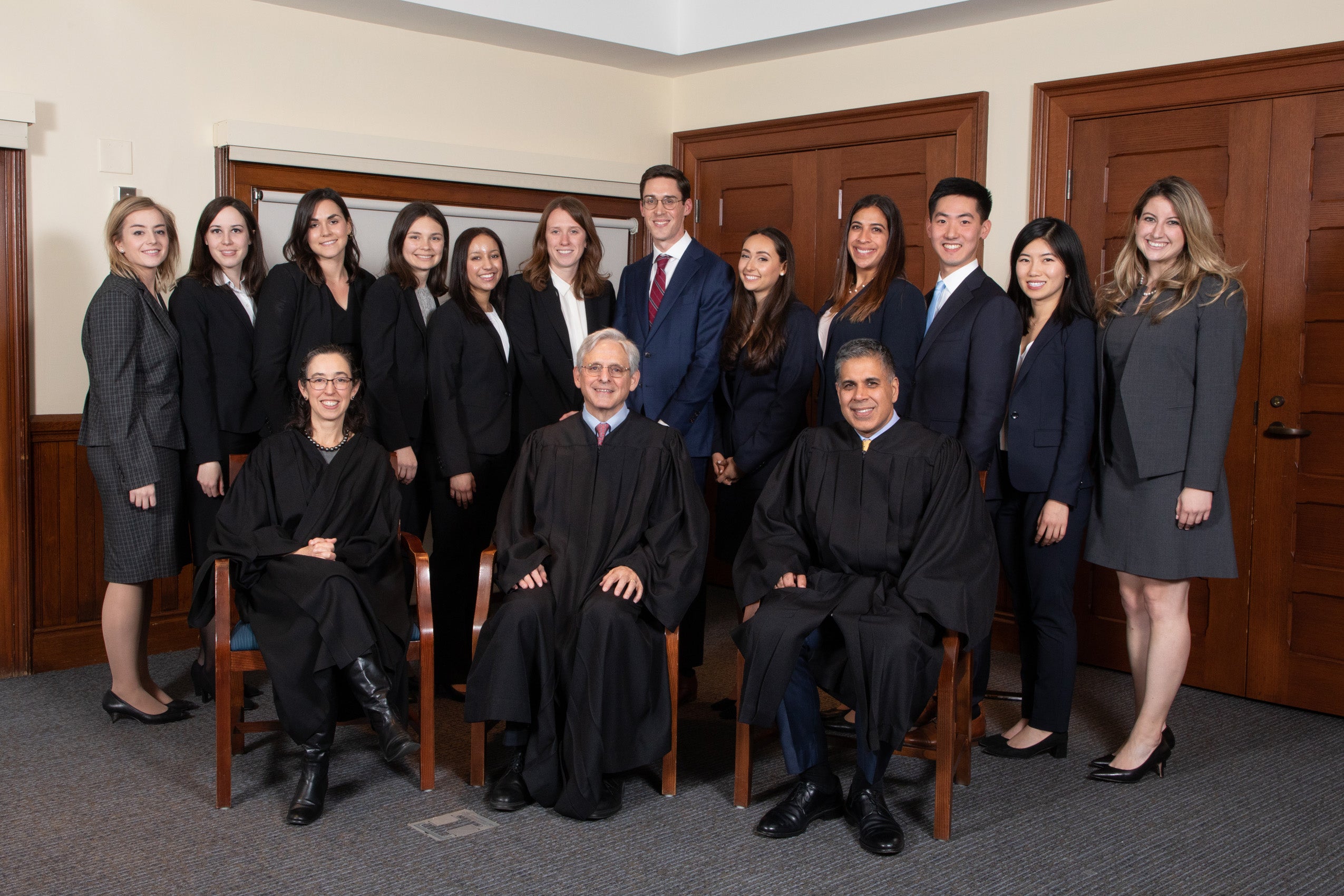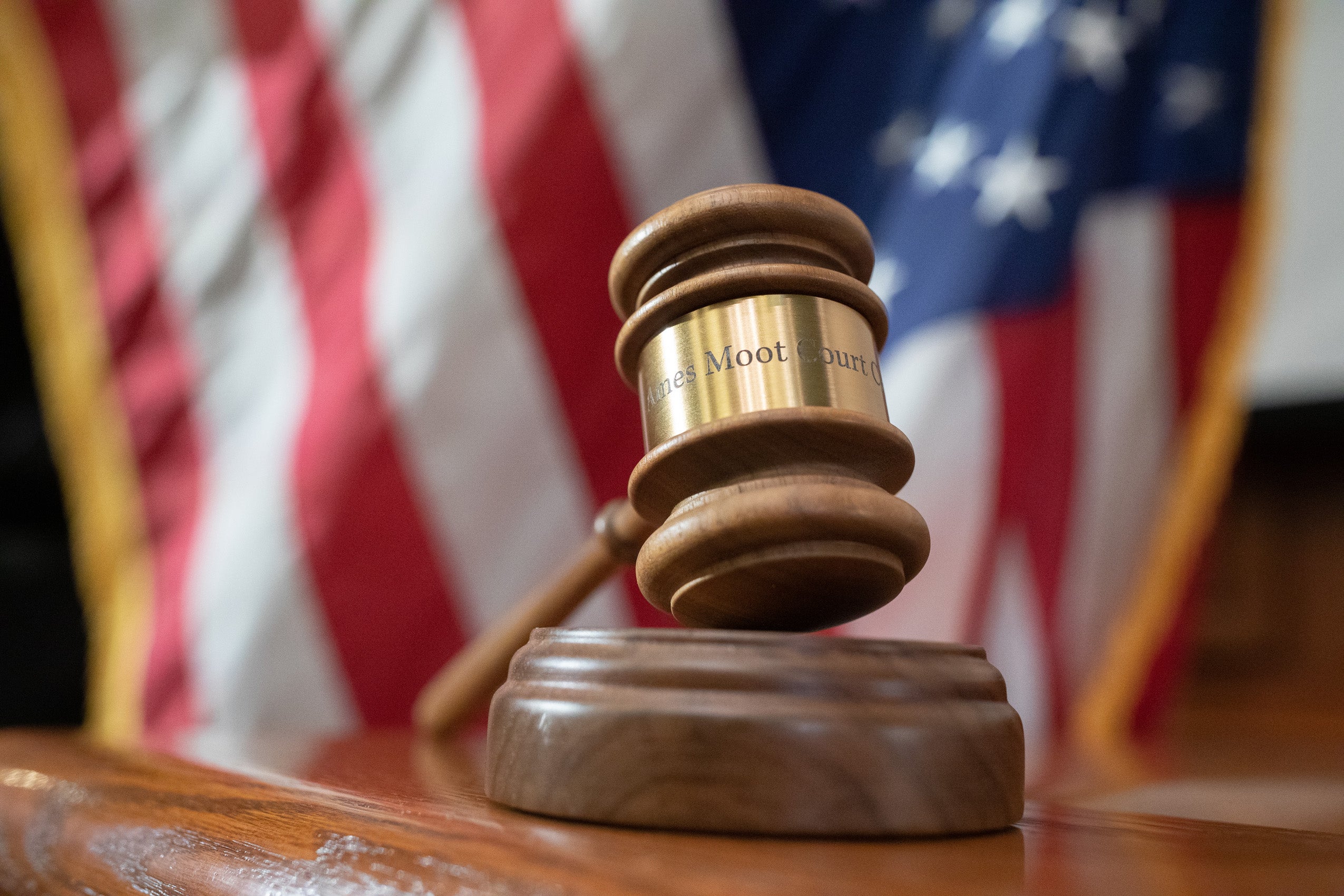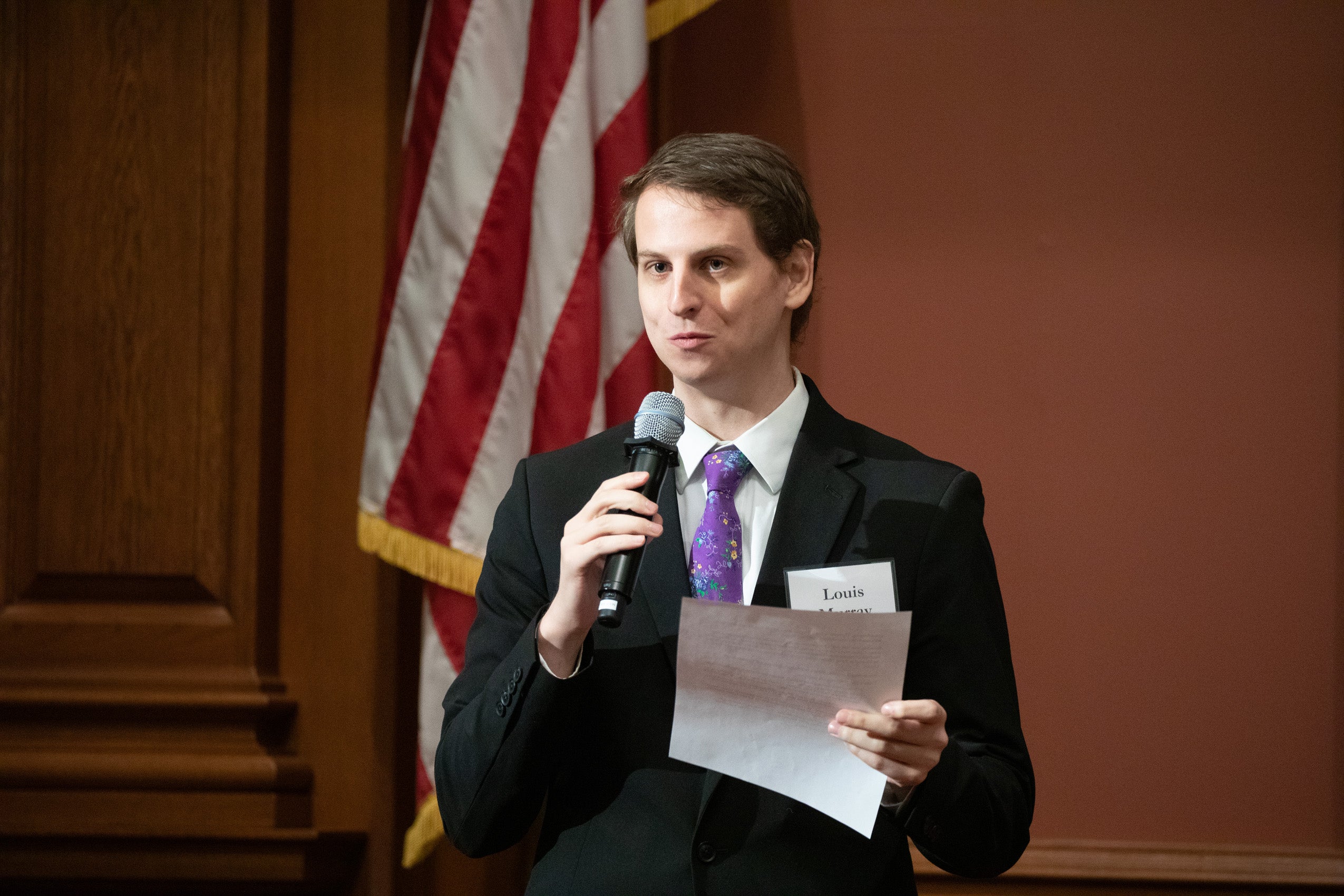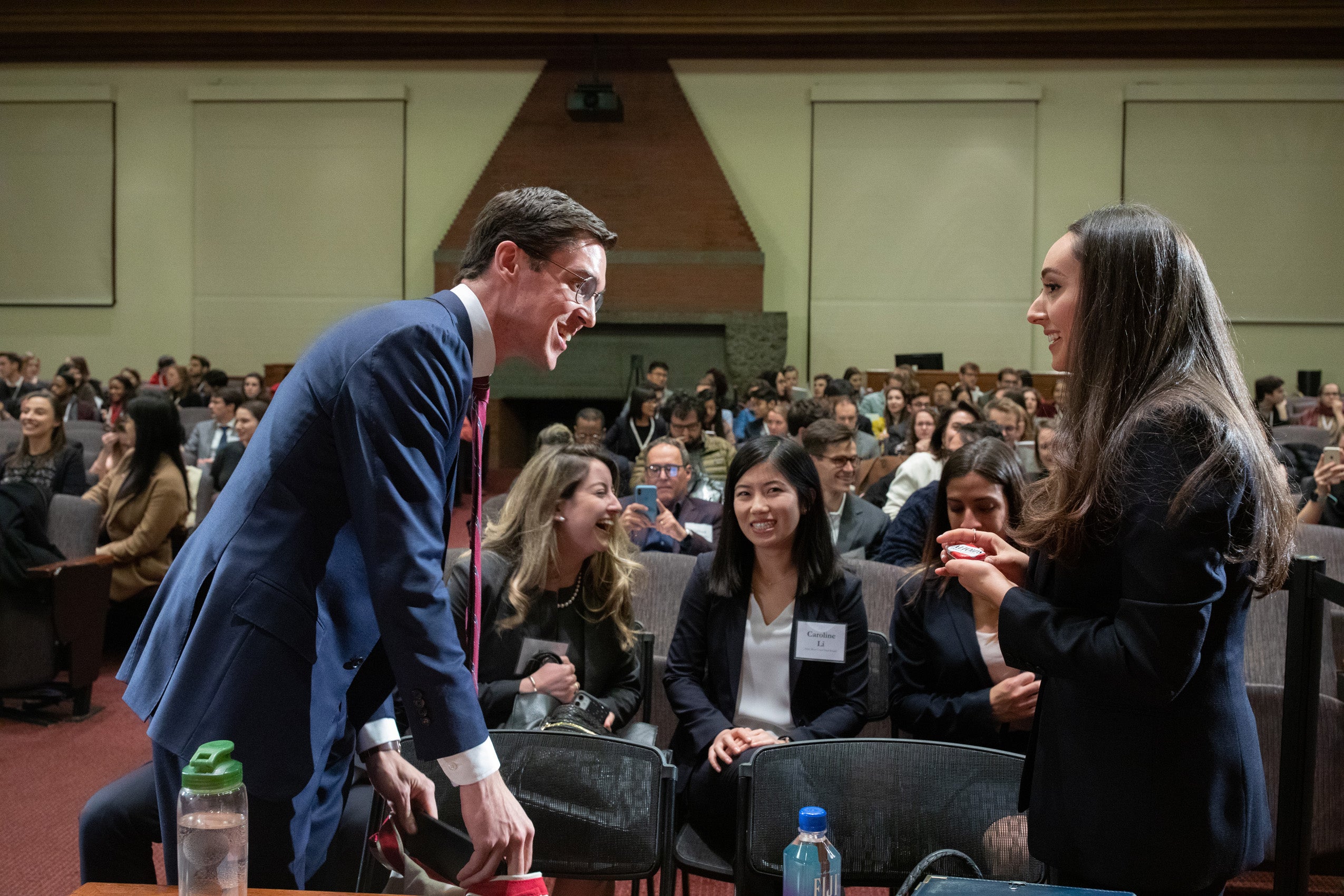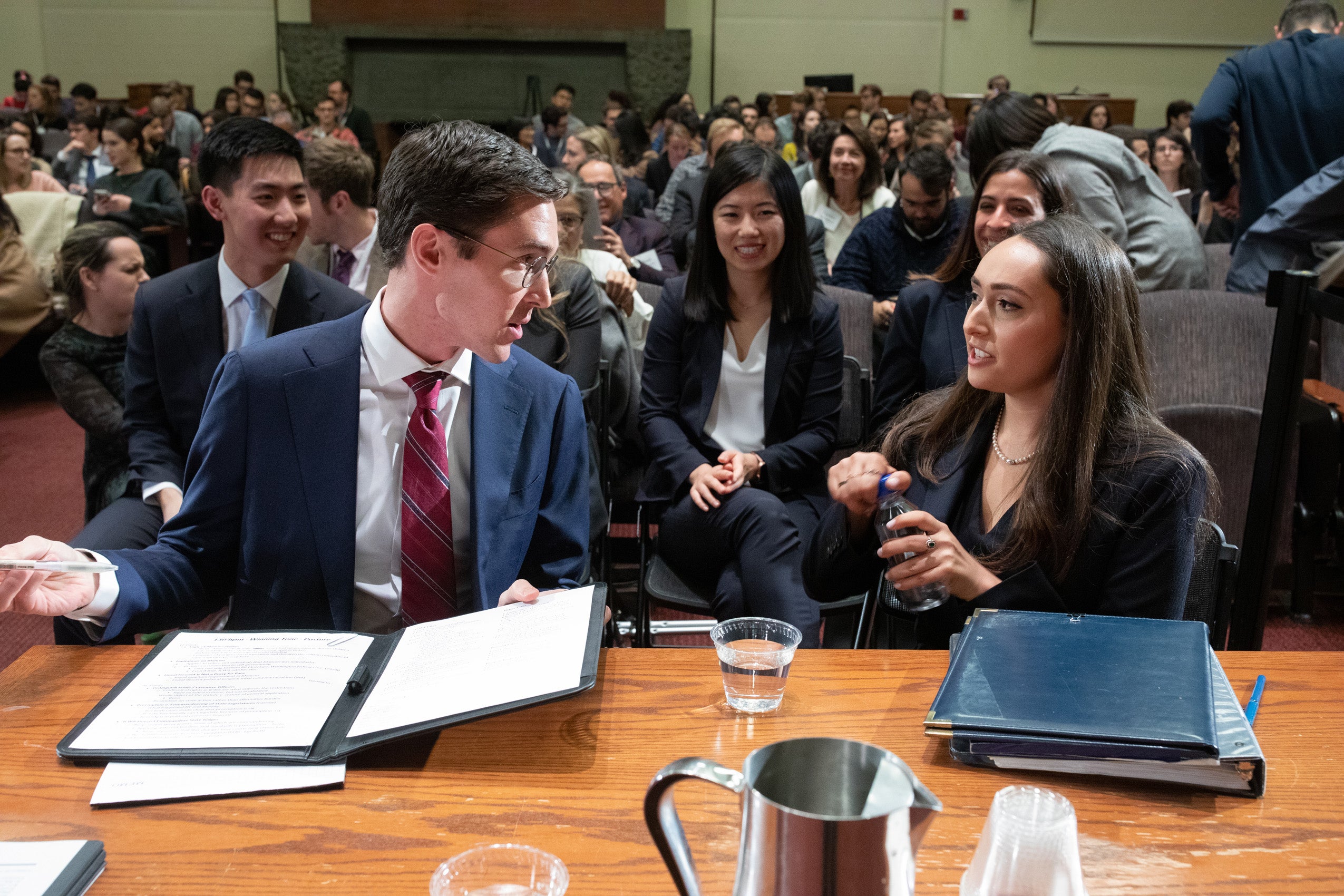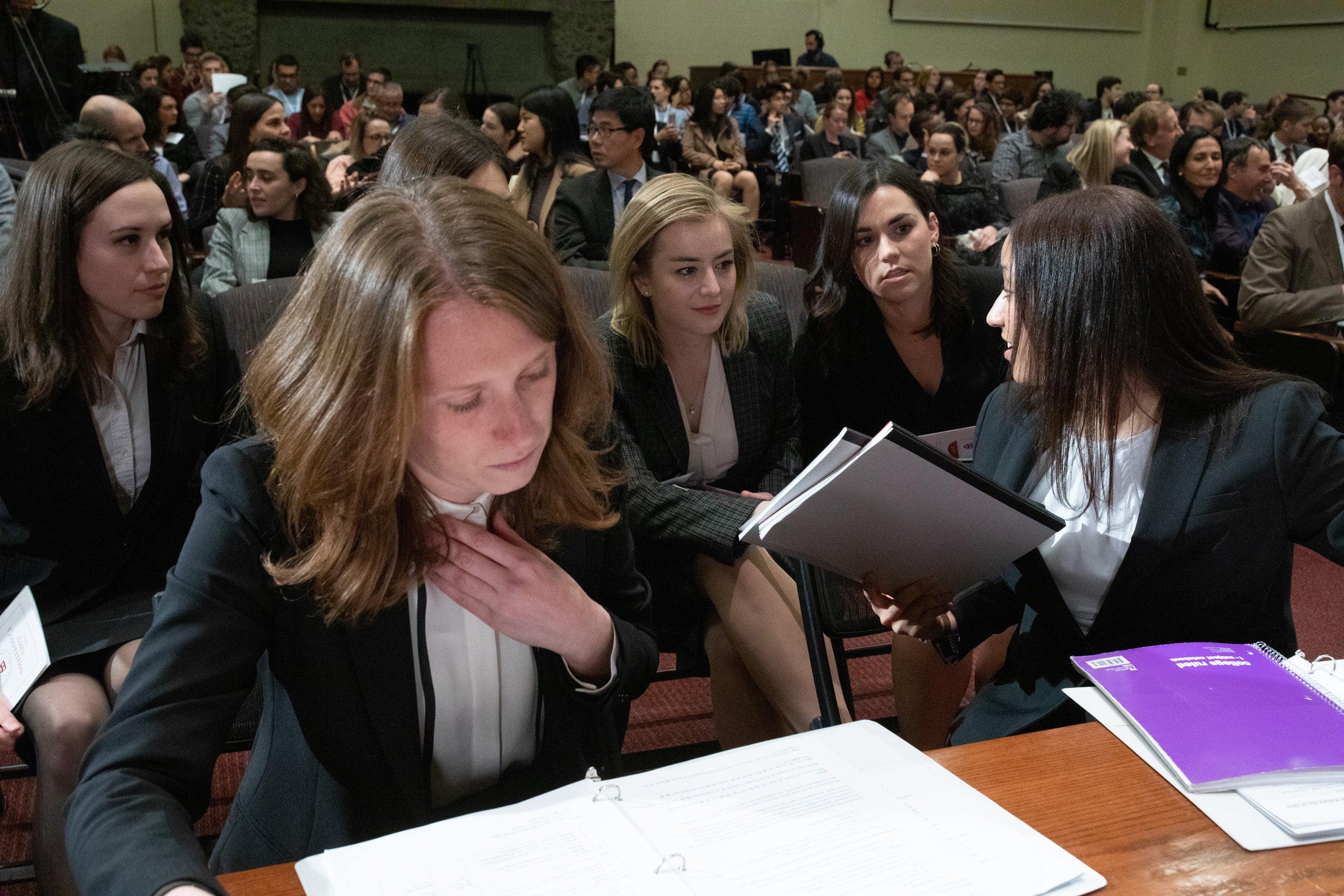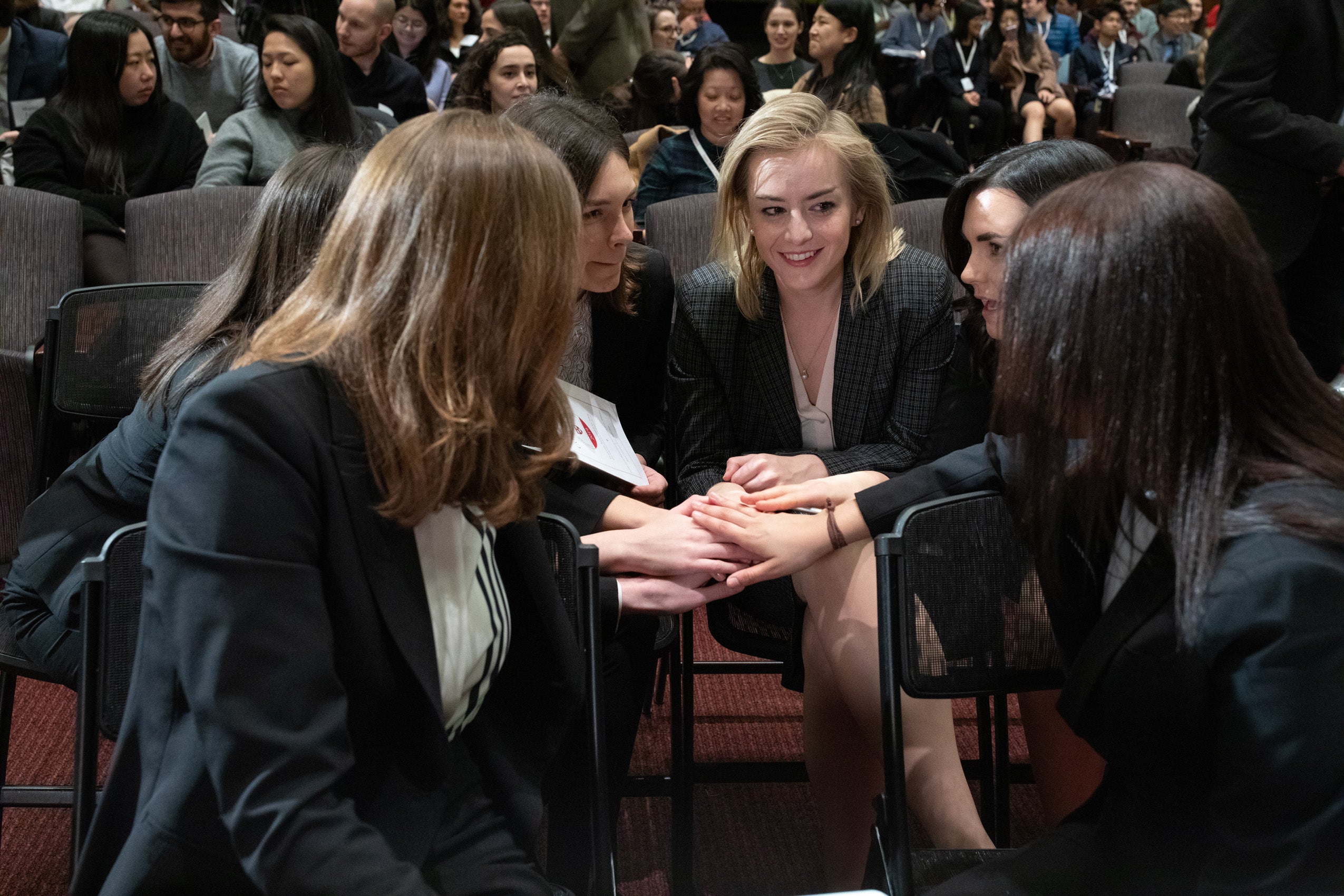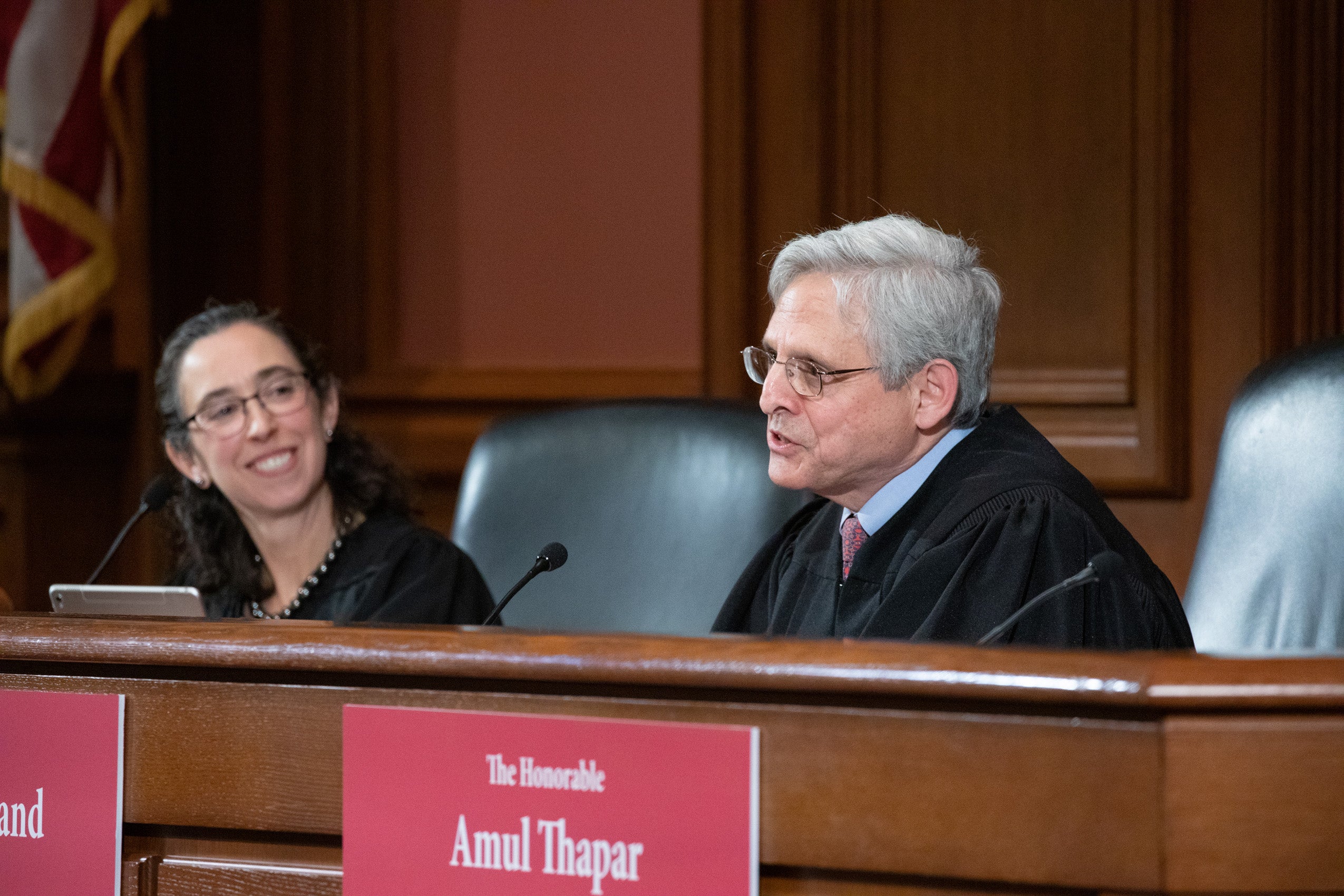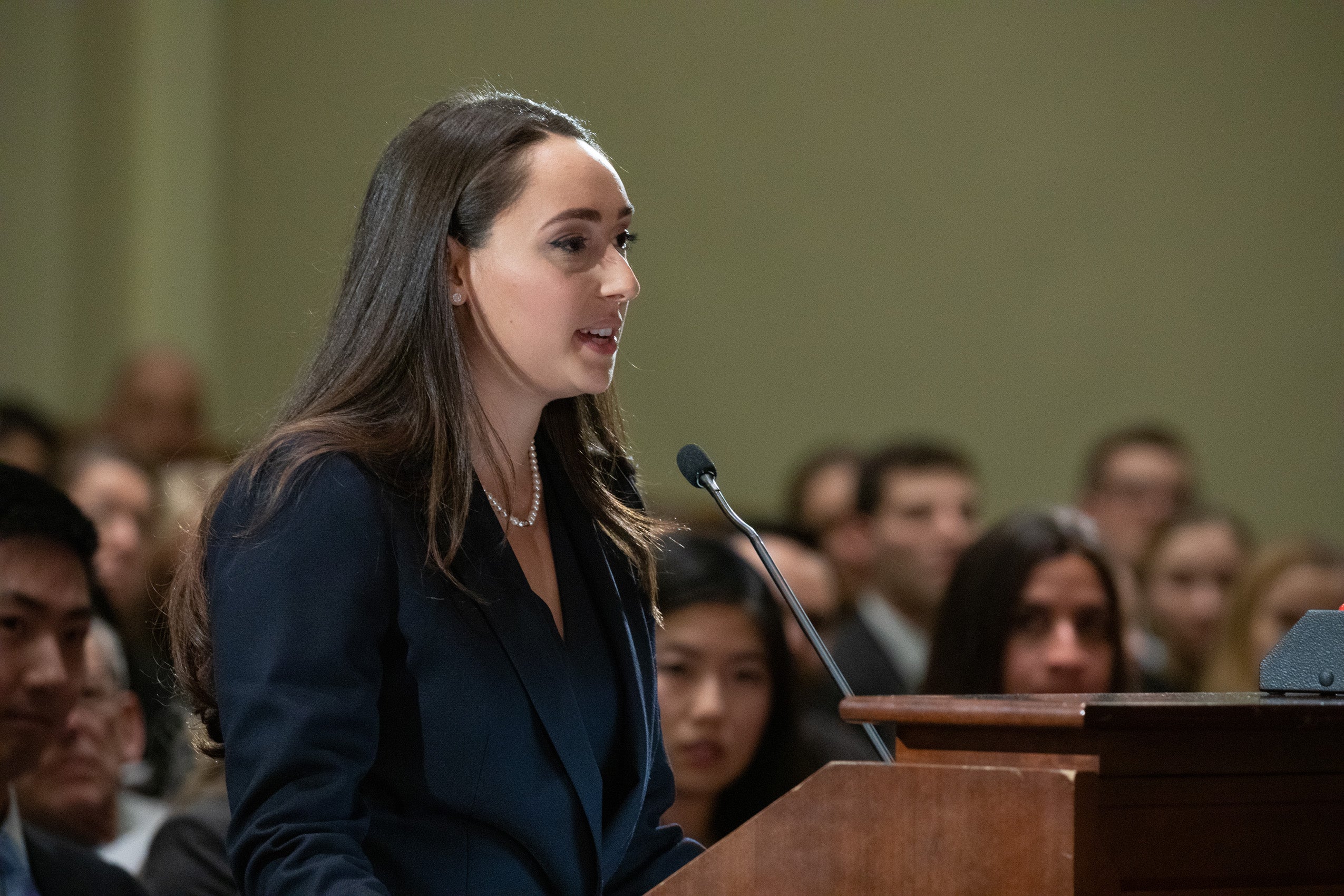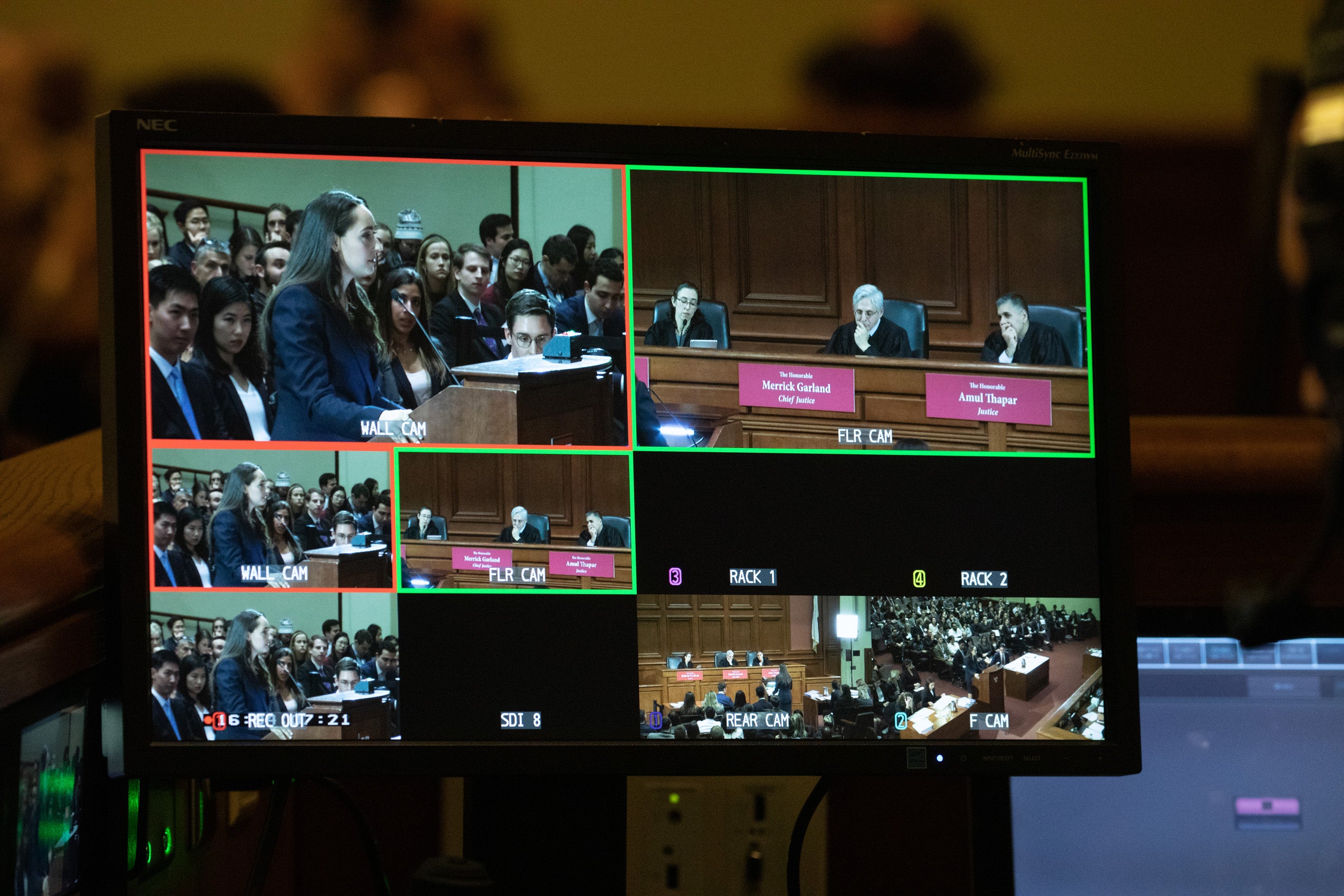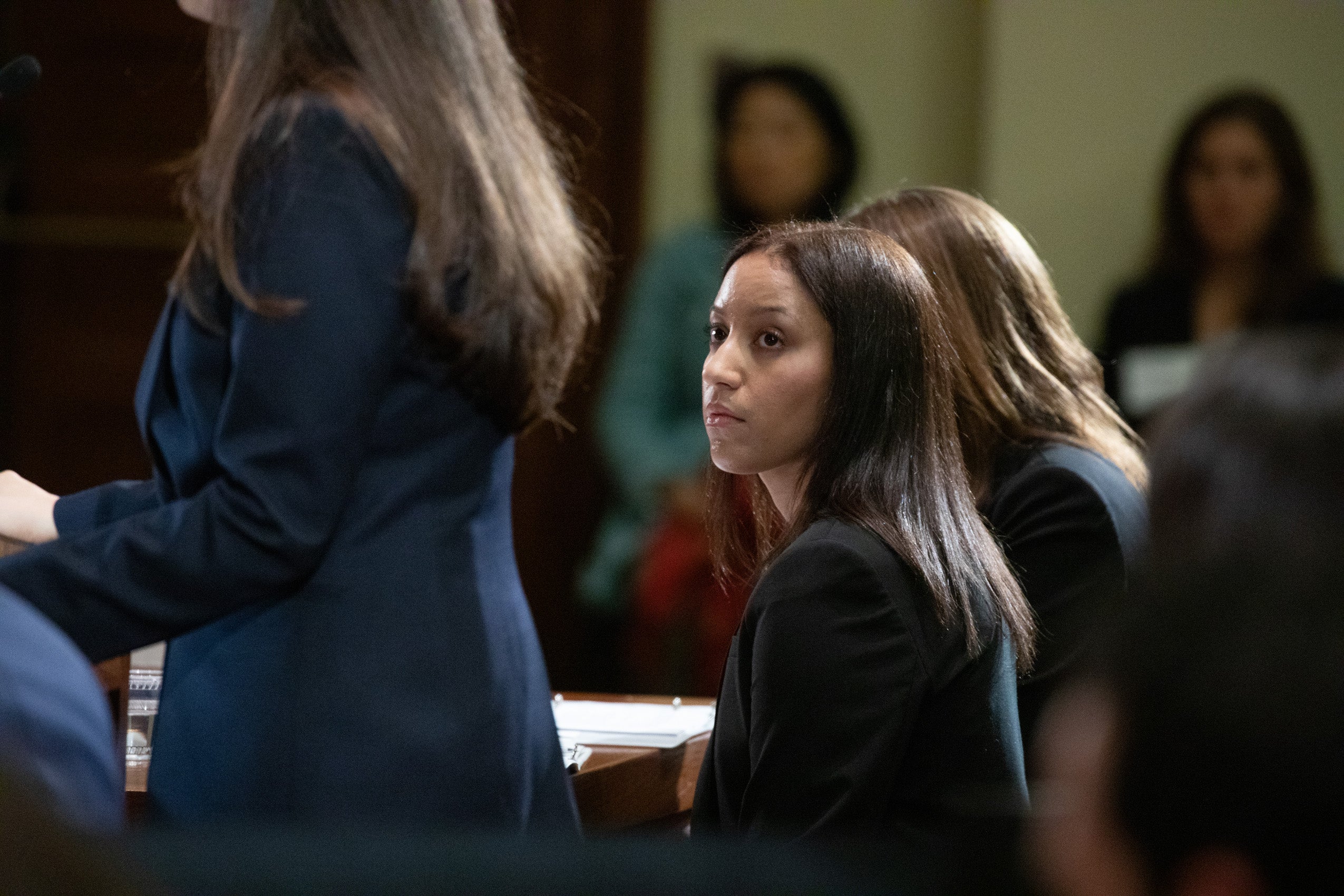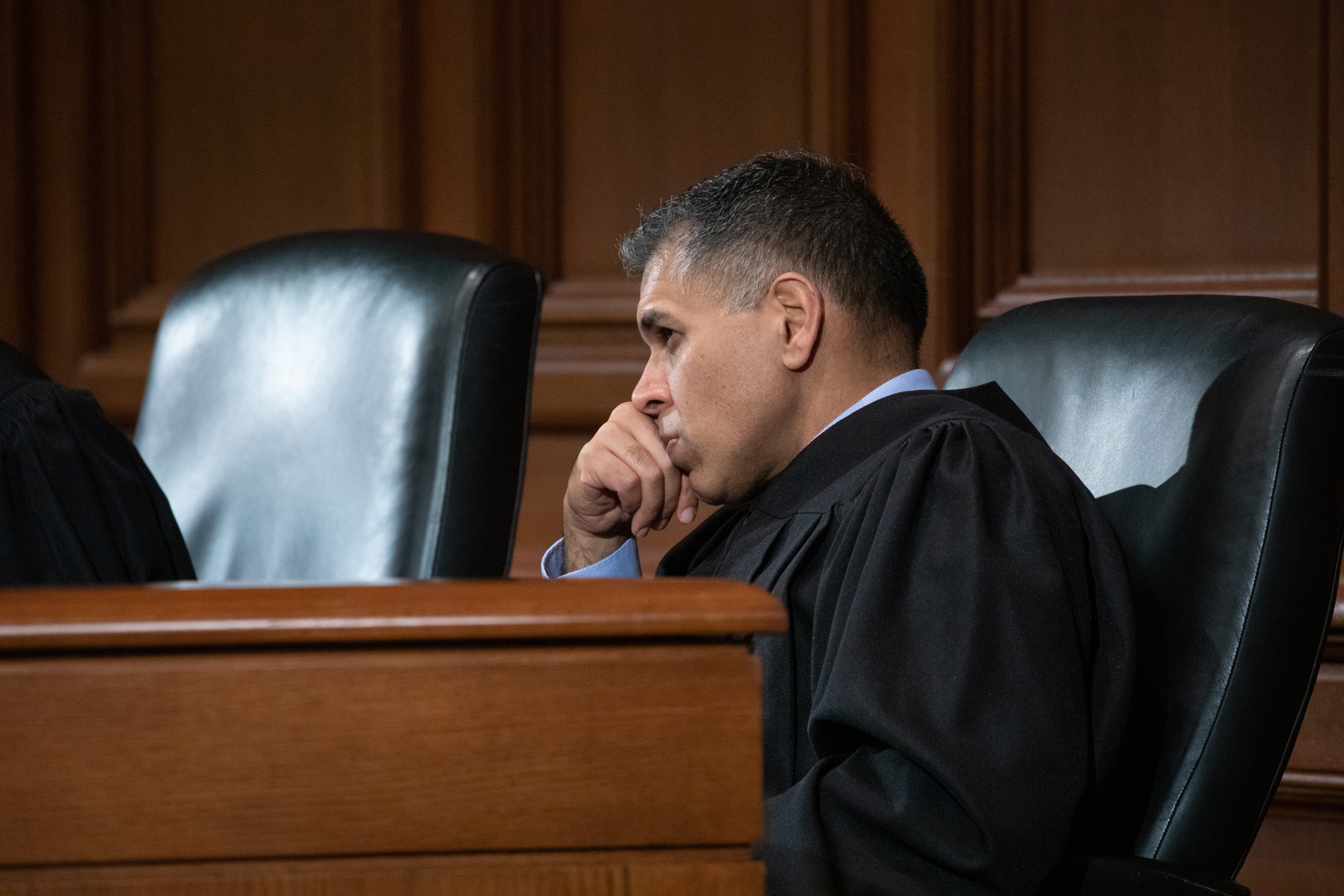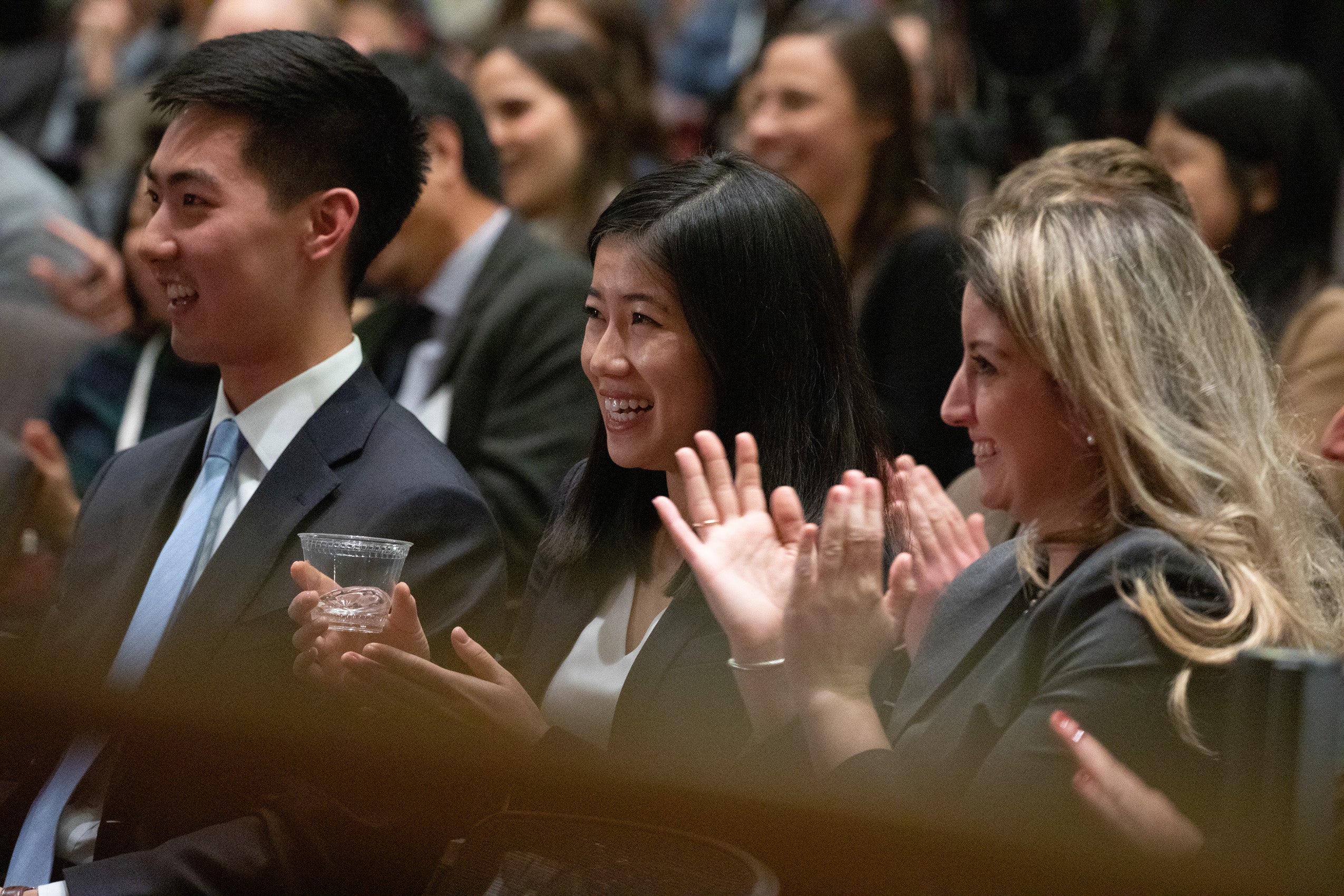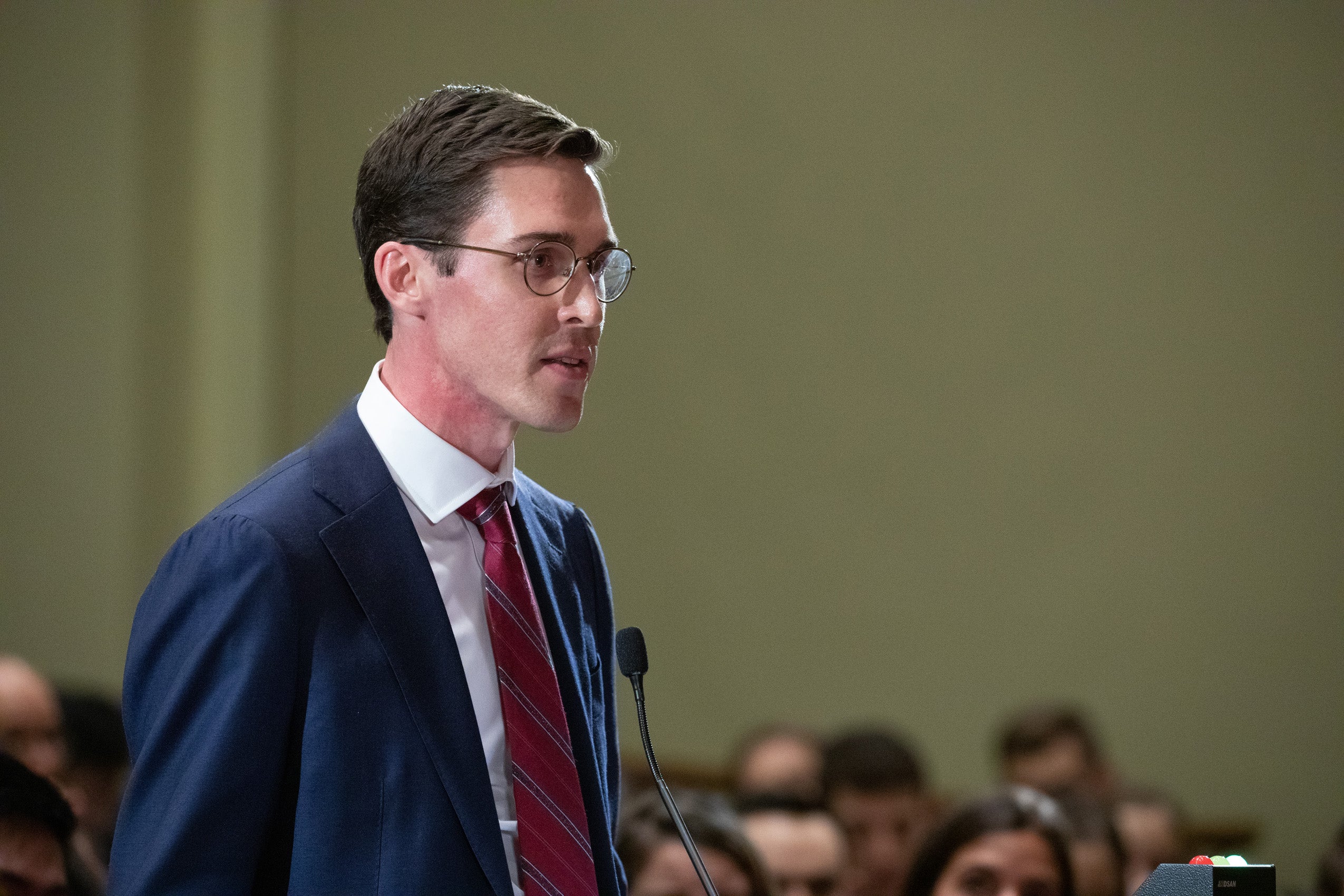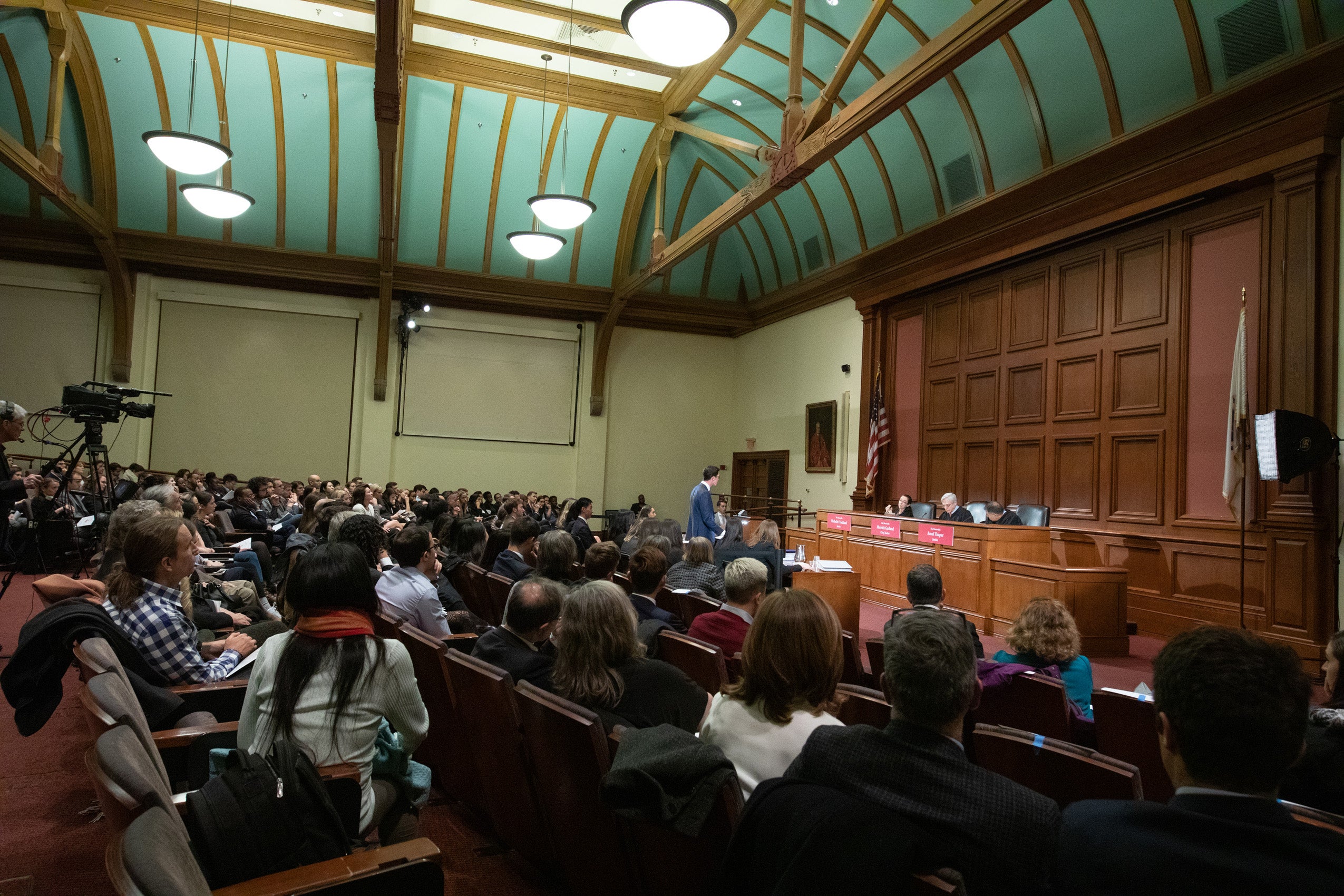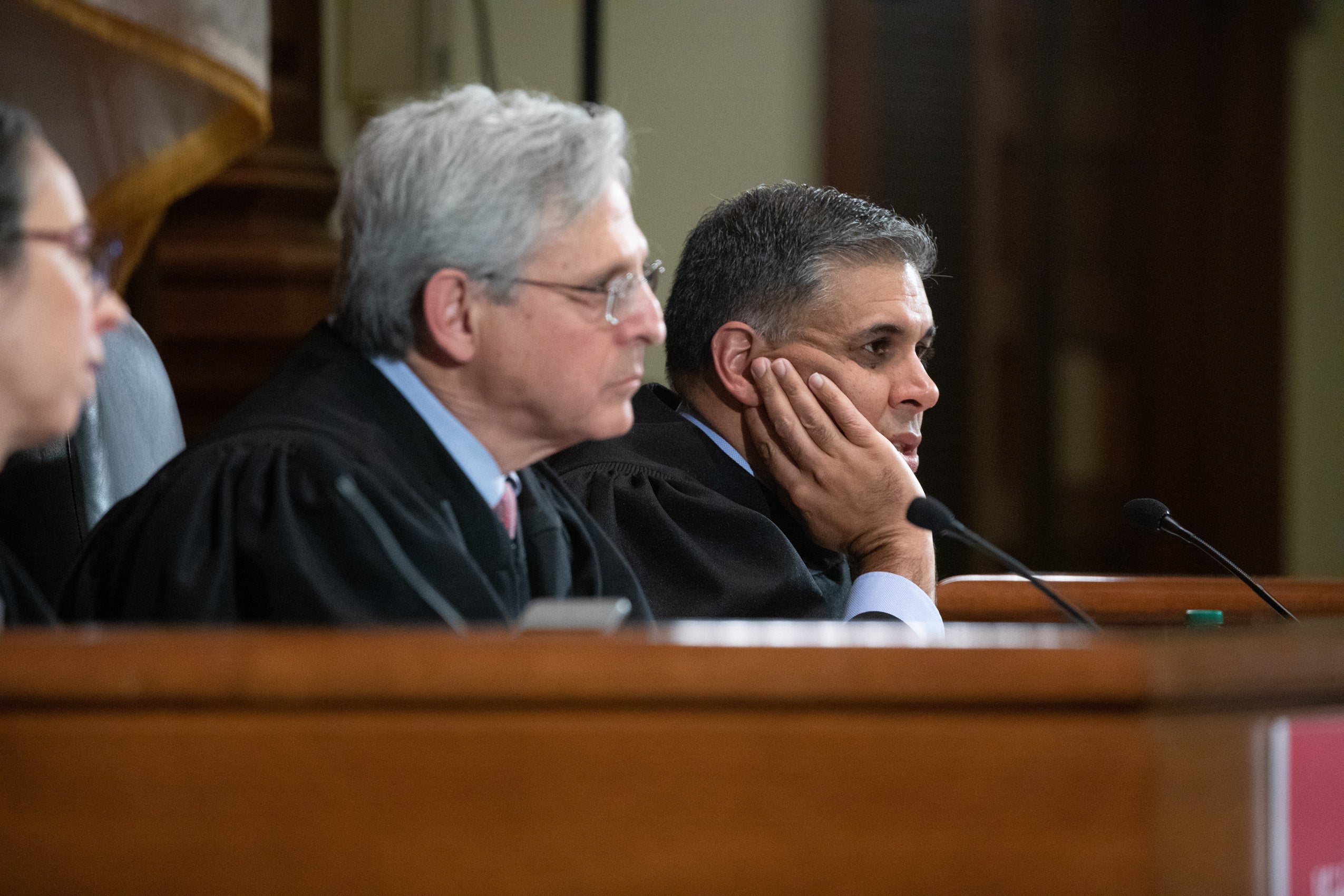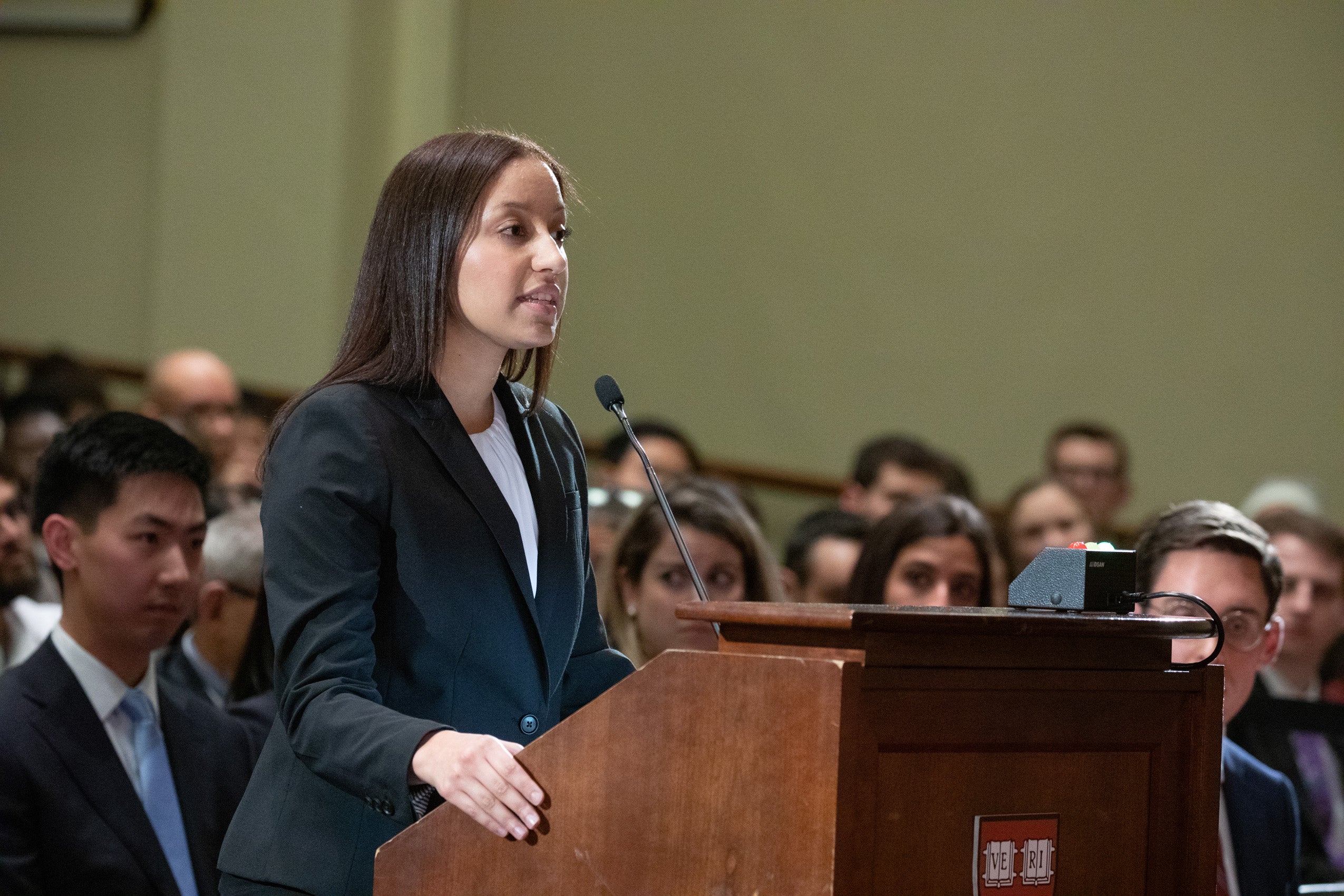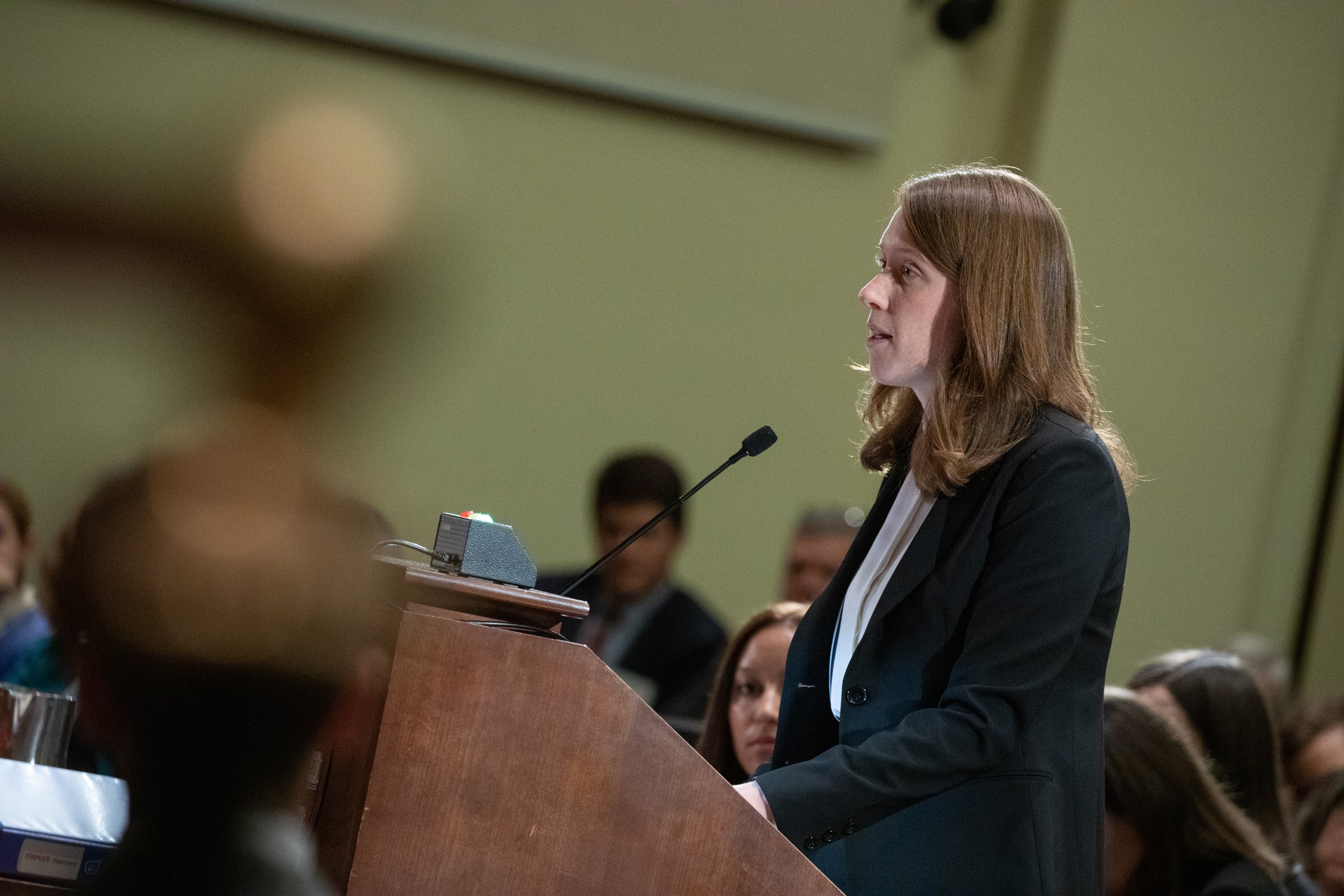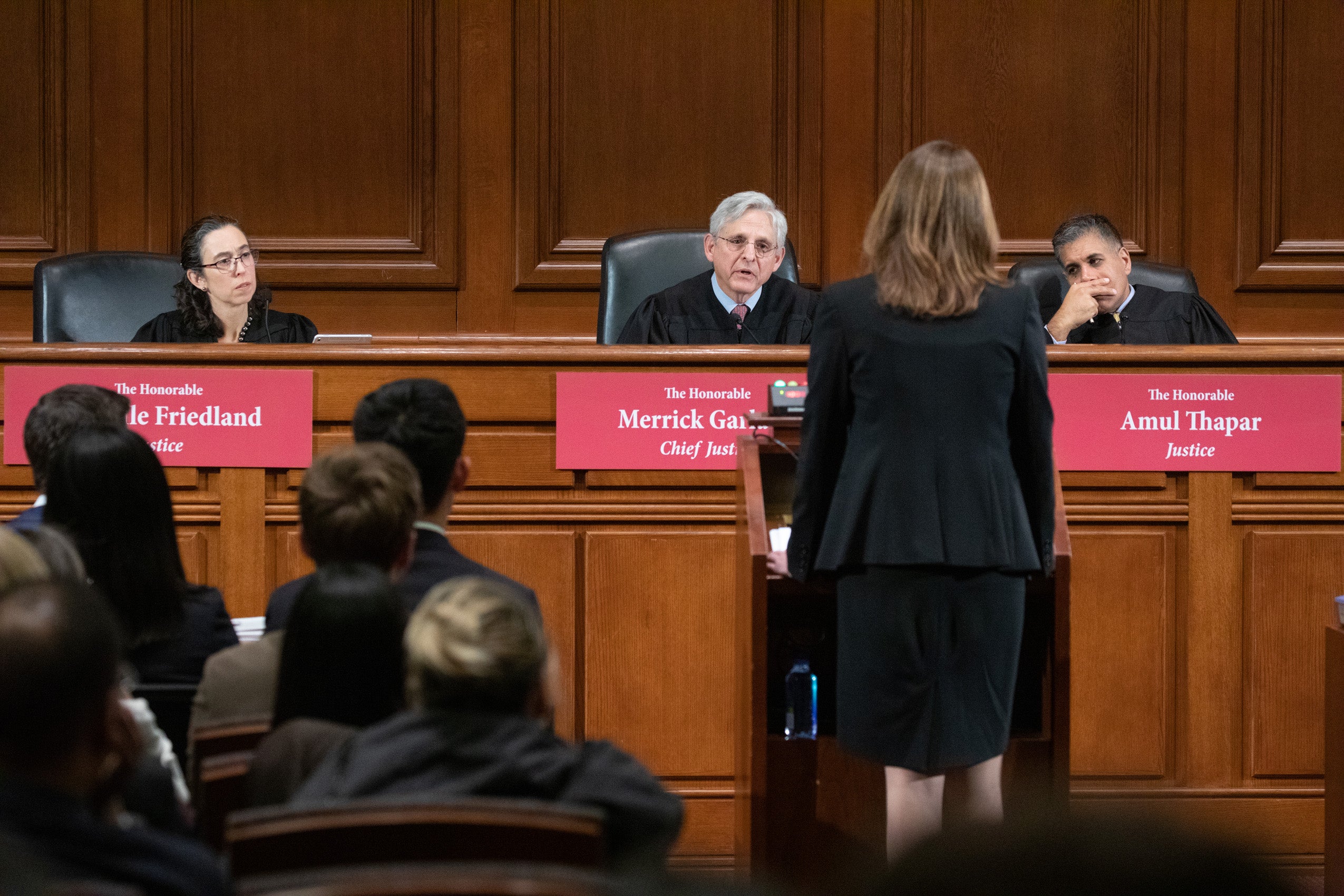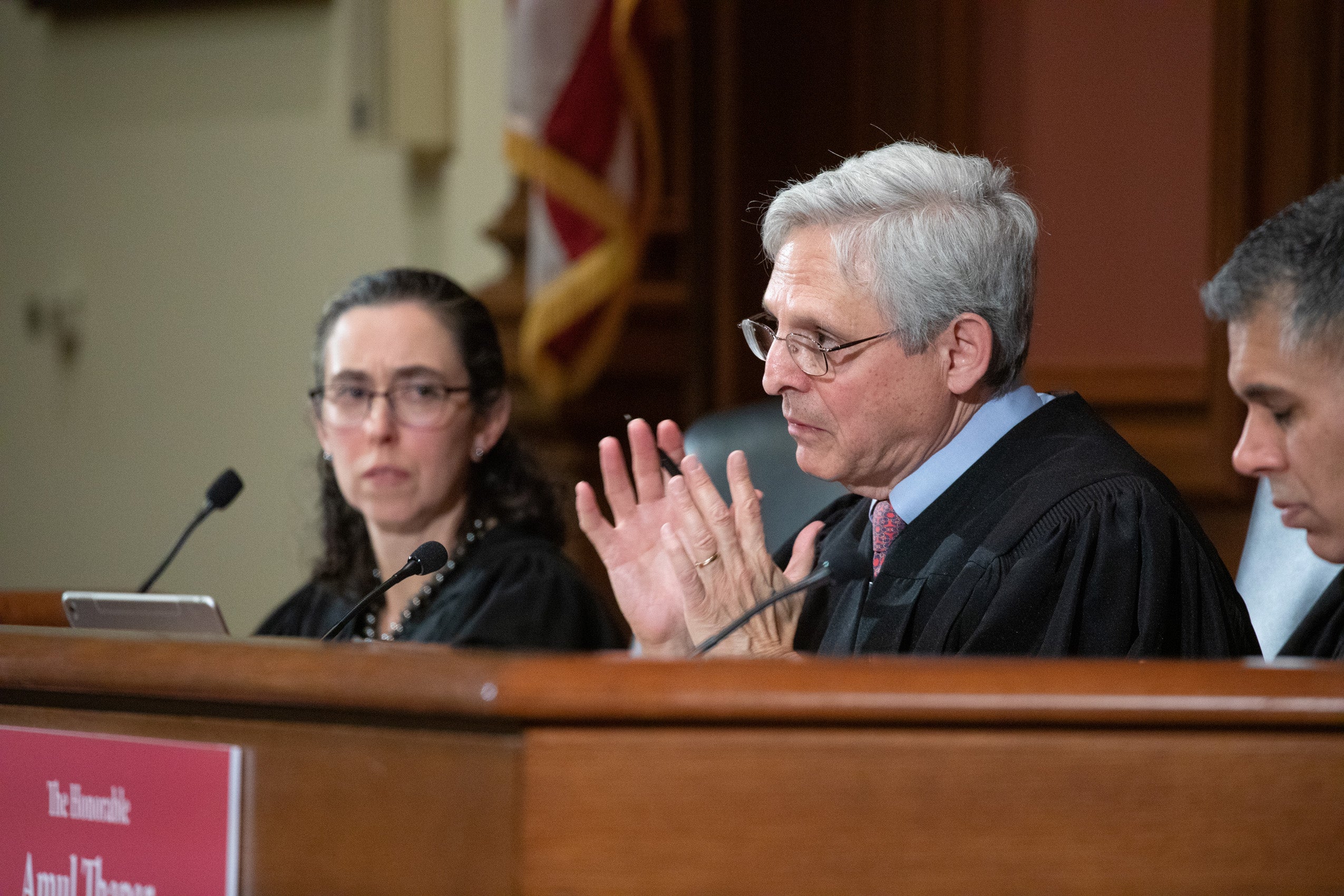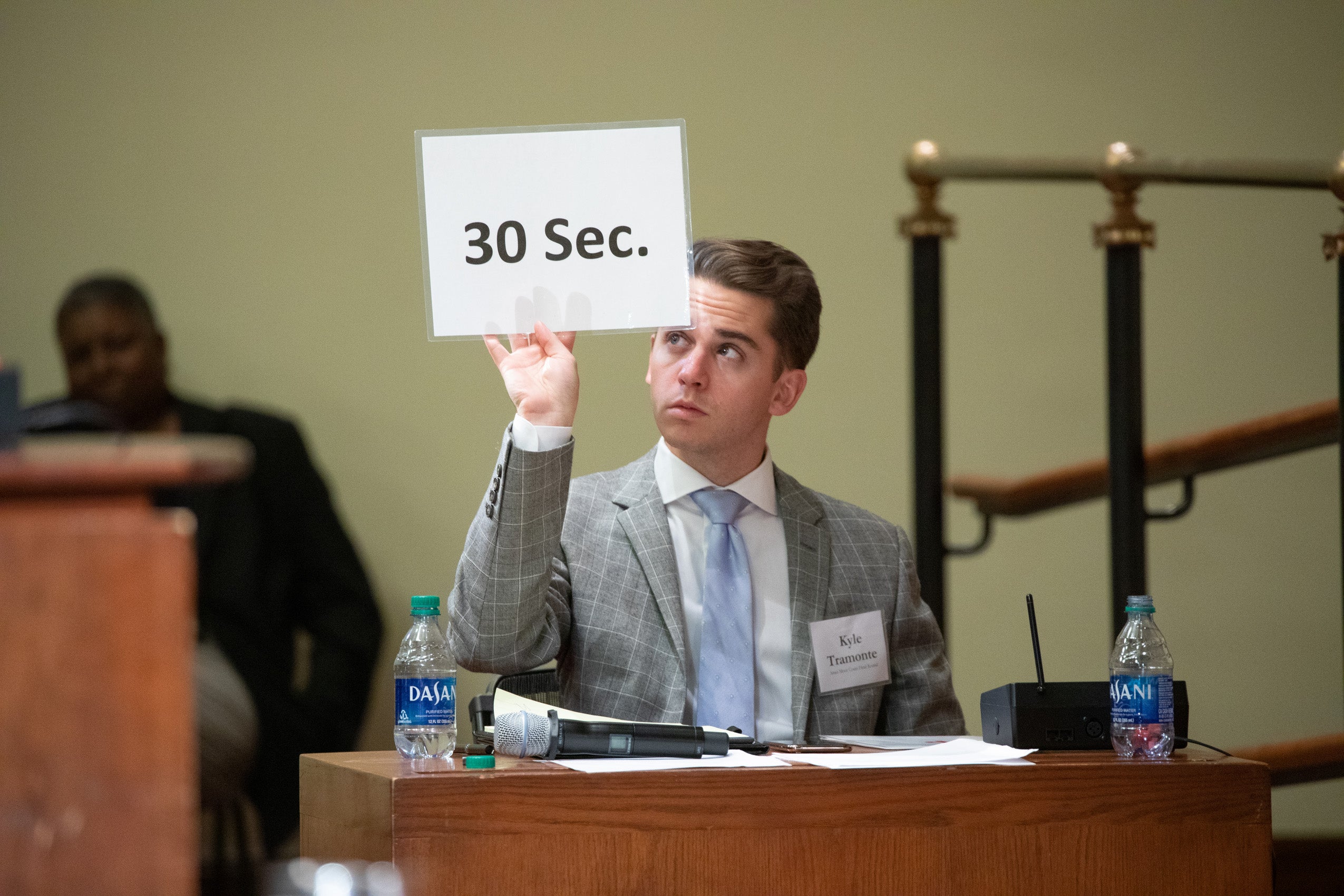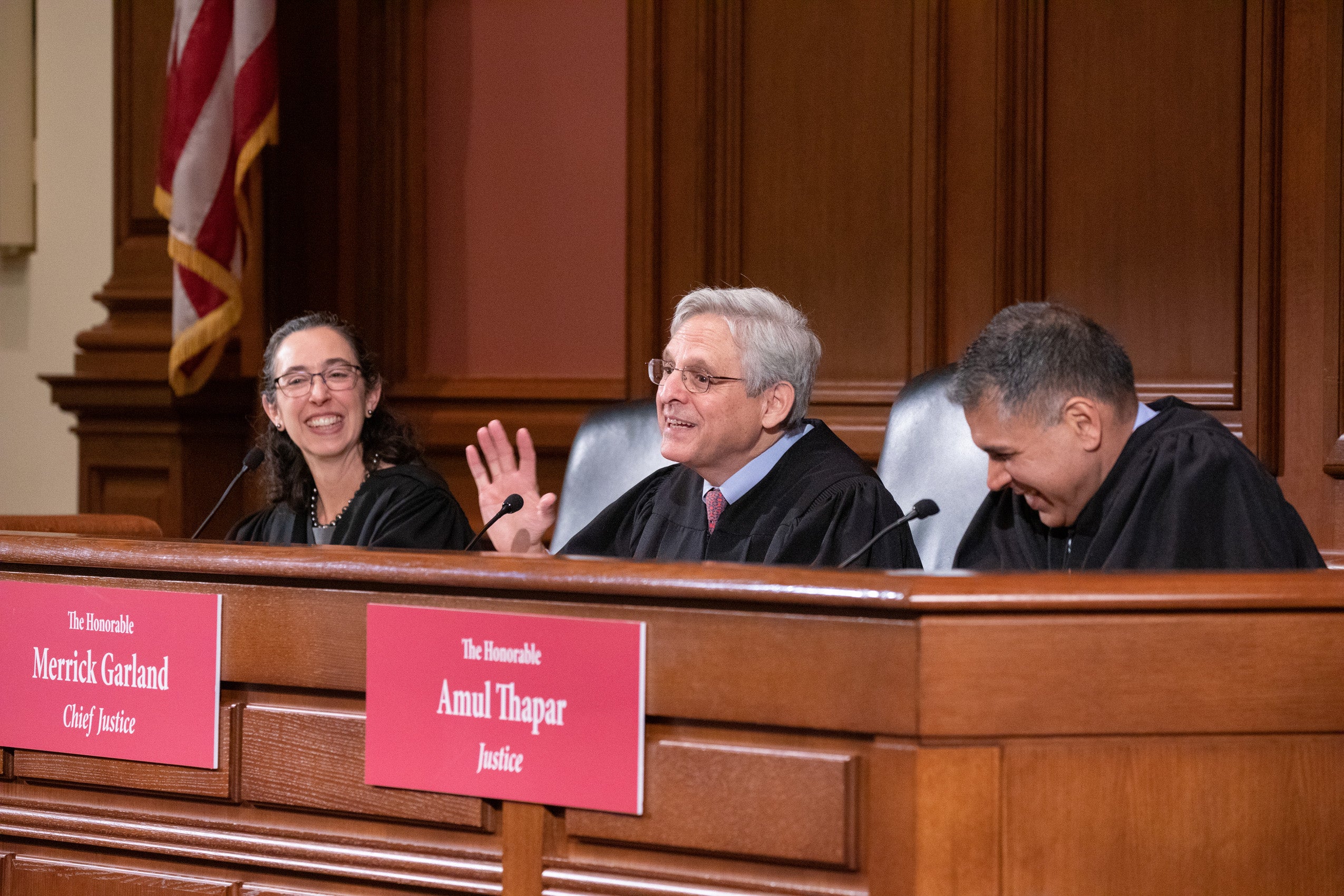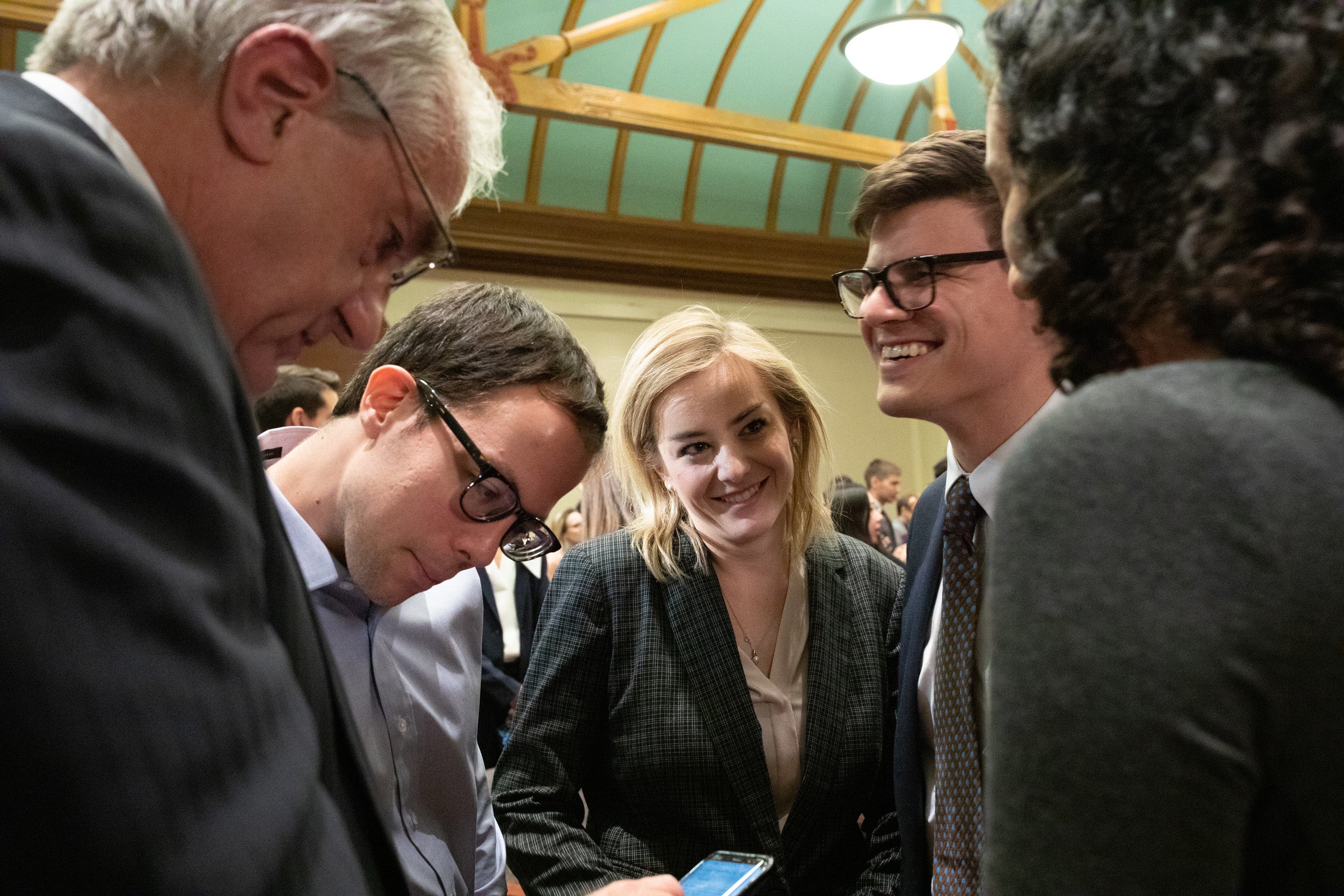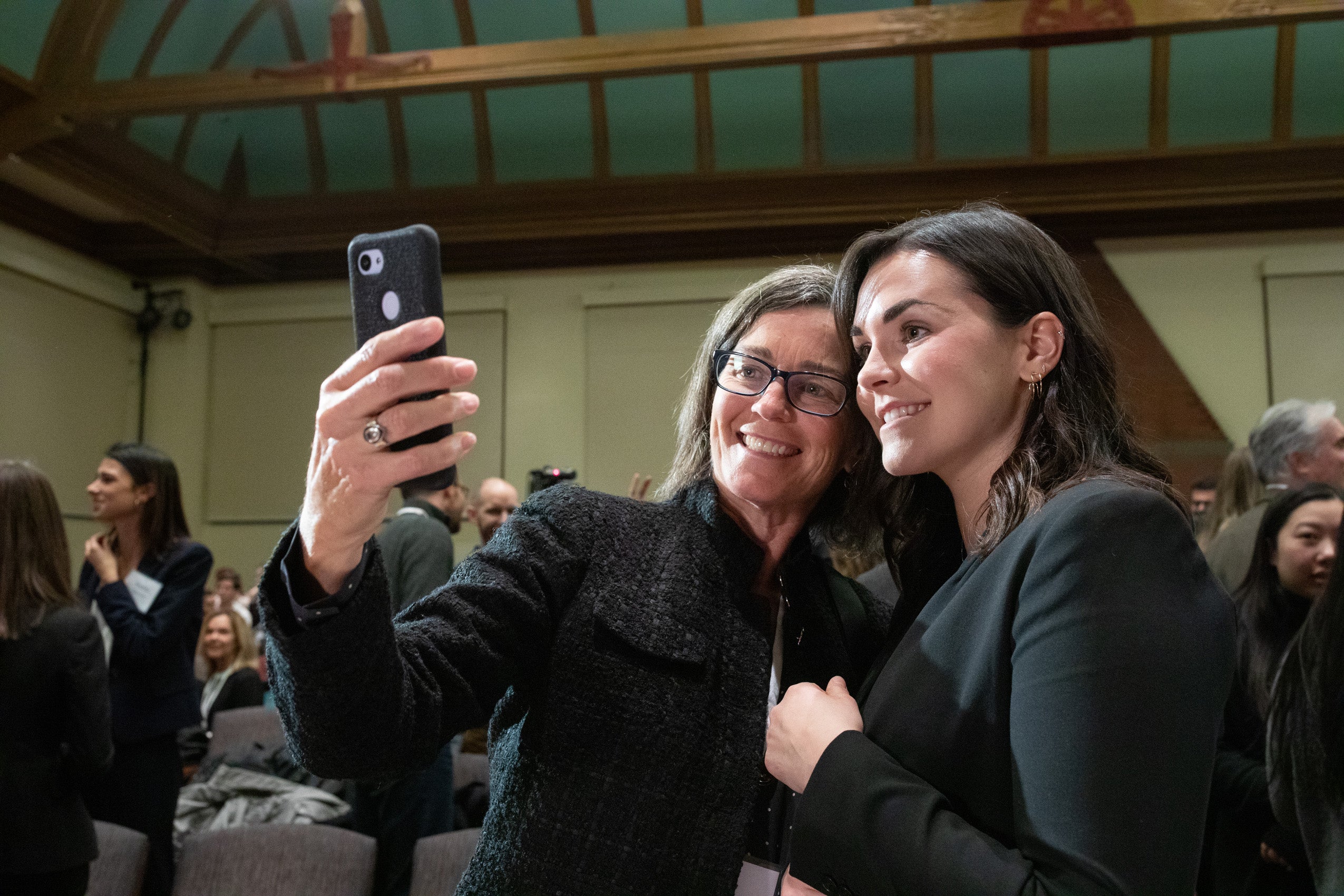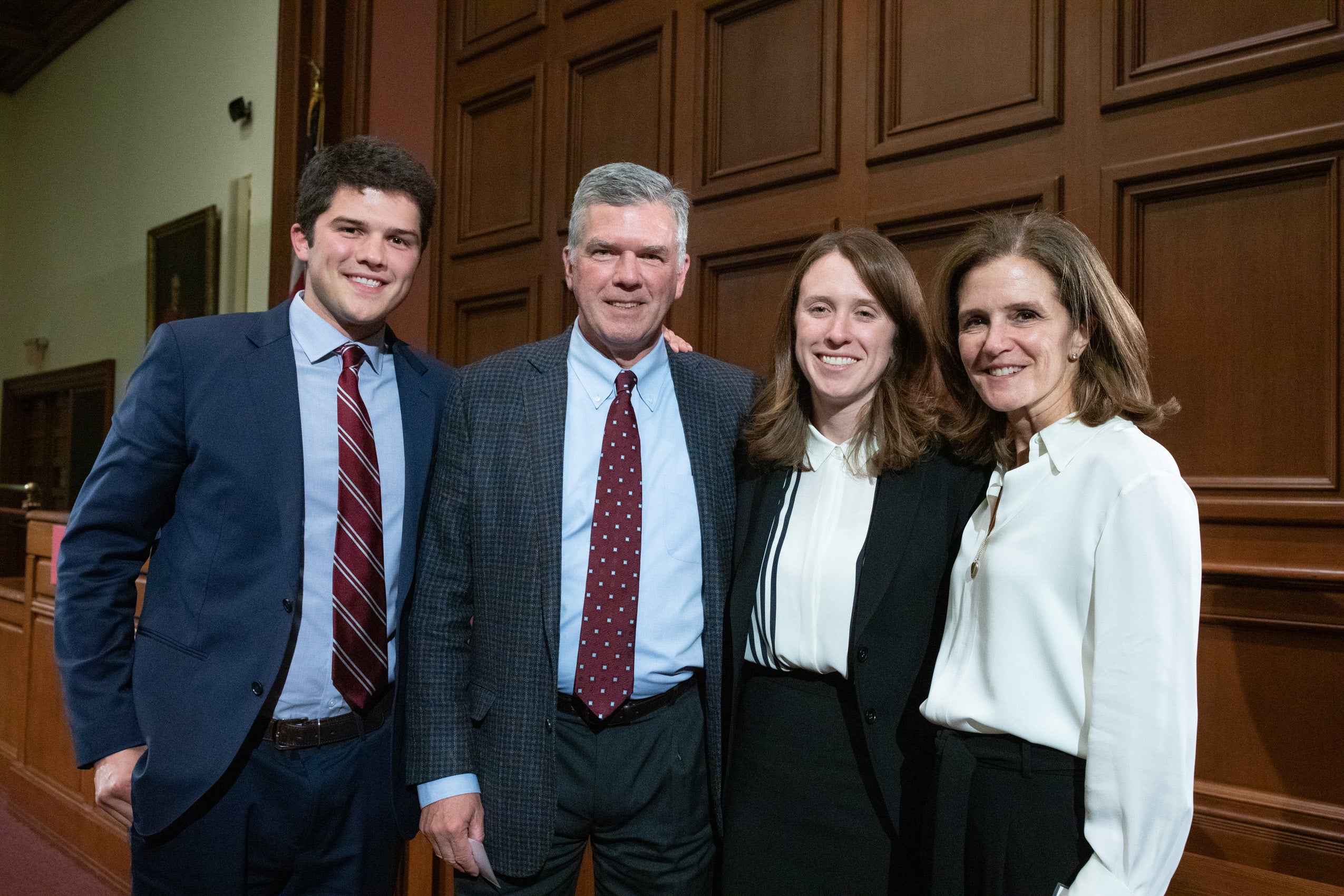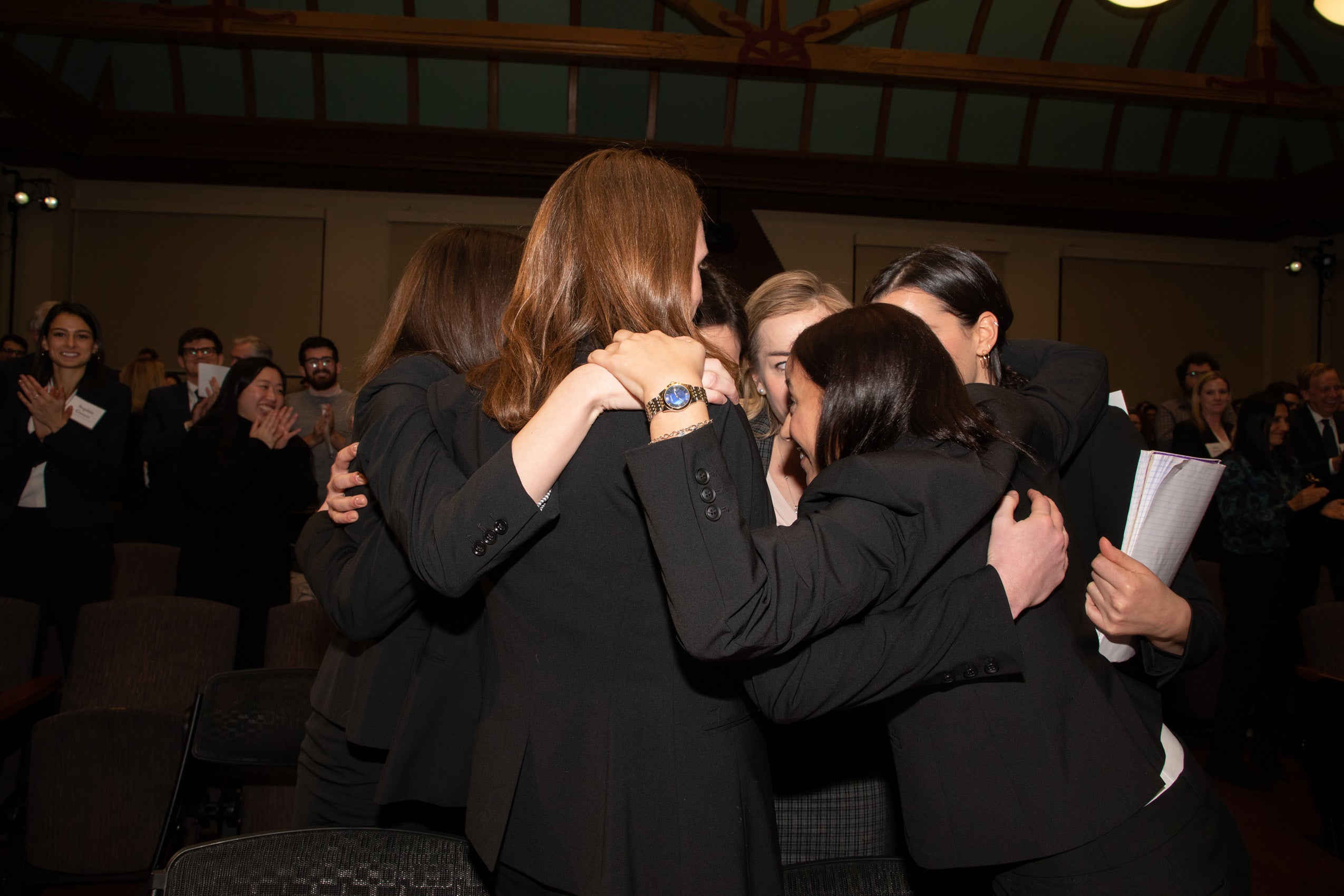After months of preparation, the final round of the annual Ames Moot Court Competition was held on November 12 at Harvard Law School.
One of the most anticipated events of the year, the competition—the culmination of a two-year process which begins during the 2L year in qualifying rounds—draws hundreds of spectators to the Ames Courtroom as two teams of six 3Ls argue a hypothetical case before an illustrious panel of distinguished jurists.
In a historic first, this year the first all-female team won. The Patricia Roberts Harris Memorial Team—which represent the respondents and included Charlotte Butash, Kelsey Fraser (oralist), Melanie Fontes (oralist), Hilary Hurd, Kate Peiffer, and Alicia Alvero Koski—was recognized as “Best Overall Team.” Kelsey Fraser was awarded “Best Oralist,” and the judges awarded “Best Brief” to the petitioners, the Janet Wood Reno Memorial Team. While an all-female team competed in 2016, this year marks the first time since the competition was founded in 1911 that an all-female team has won.
Patricia Roberts Harris Memorial Team (Respondents)
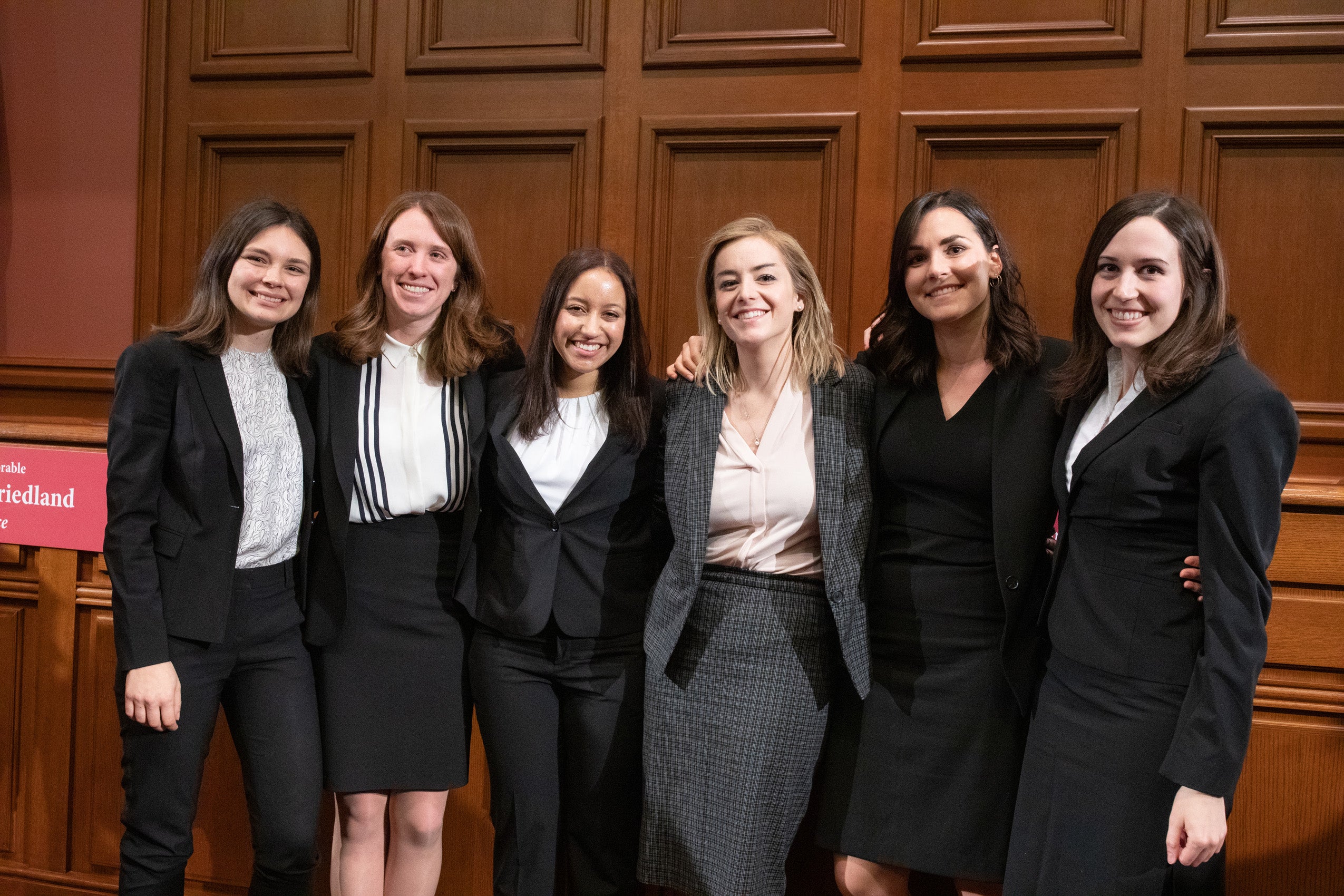
This year, Merrick Garland ’77, chief judge of the U.S. Court of Appeals for the District of Columbia Circuit, presided as chief justice. Joining him on the panel were Judge Michelle Friedland of the U.S. Court of Appeals for the Ninth Circuit, and Judge Amul Thapar of the U.S. Court of Appeals for the Sixth Circuit.
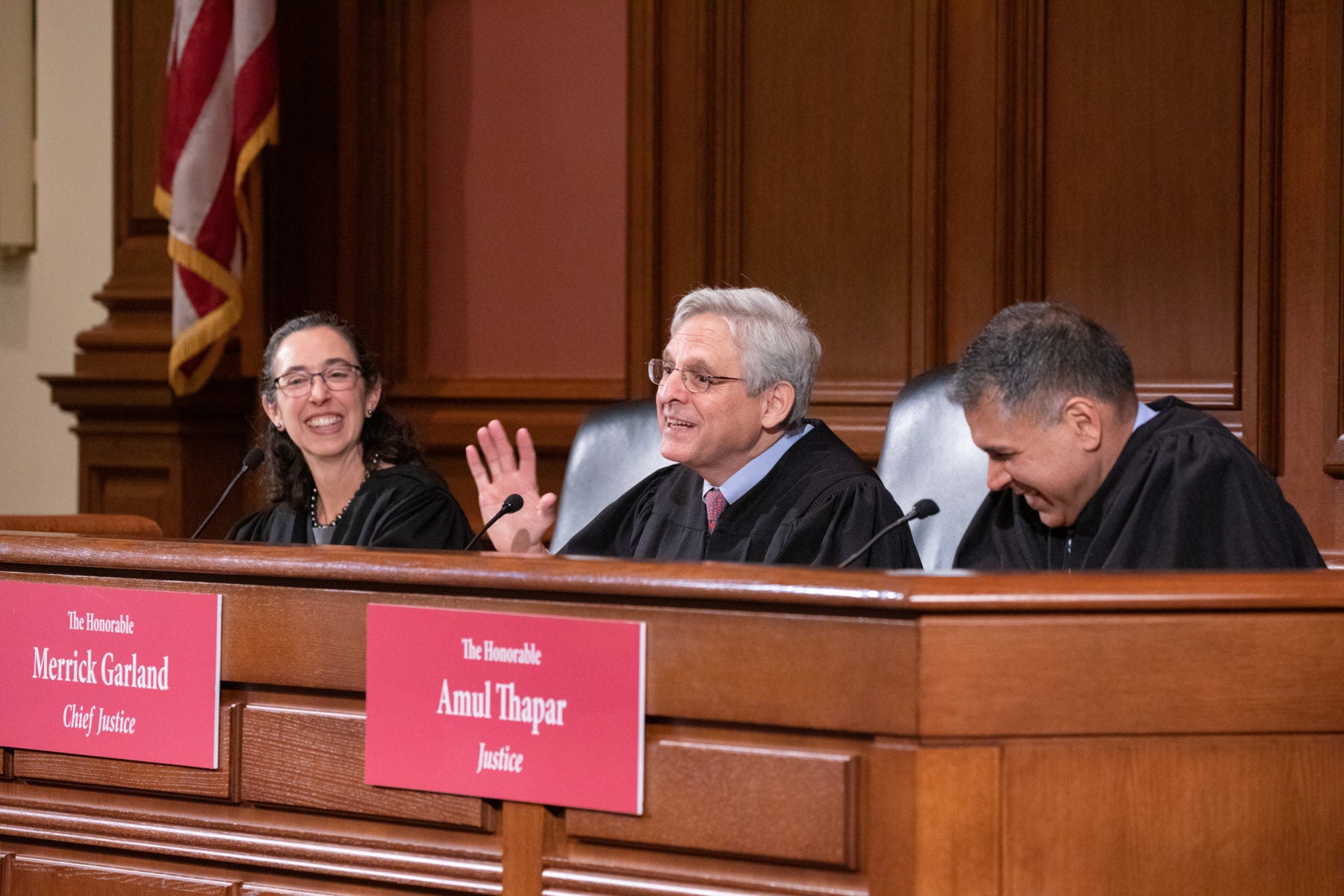
This year’s case, United States Department of Interior v. Bryce Caldwell, involved a challenge to the Indian Child Welfare Act (ICWA) which preferences, in adoption proceedings, the placement of a child with a member of its extended family, other members of its tribe, or other Indian families. A second issue in the case was whether the ICWA violated the anti-commandeering component of the 10th Amendment because it imposed duties on state officials to carry out a federal program.
Taking the side of the petitioner, the Janet Wood Reno Memorial Team, with Mikaela Gilbert-Lurie ’20 and Al Kelly ’20 as oralists, argued that the court has made clear that Congress agreed that children suffered from being removed from their tribe and from tribal culture altogether, and the ICWA ensures that children remain immersed in tribal culture. They urged the court to consider the opinion of the biological parent, the child and the existence of a sibling in considering this case.
The respondents, the Patricia Roberts Harris Memorial Team with oralists Melanie Fontes ’20 and Kelsey Fraser ’20, argued that the ICWA operates on a racial classification not a political classification, and is unconstitutional for three reasons: the classification is racial and subject to strict scrutiny; it is not narrowly tailored; and, even if it were political, it is not rationally related to a state interest.
Janet Wood Reno Memorial Team (Petitioners)
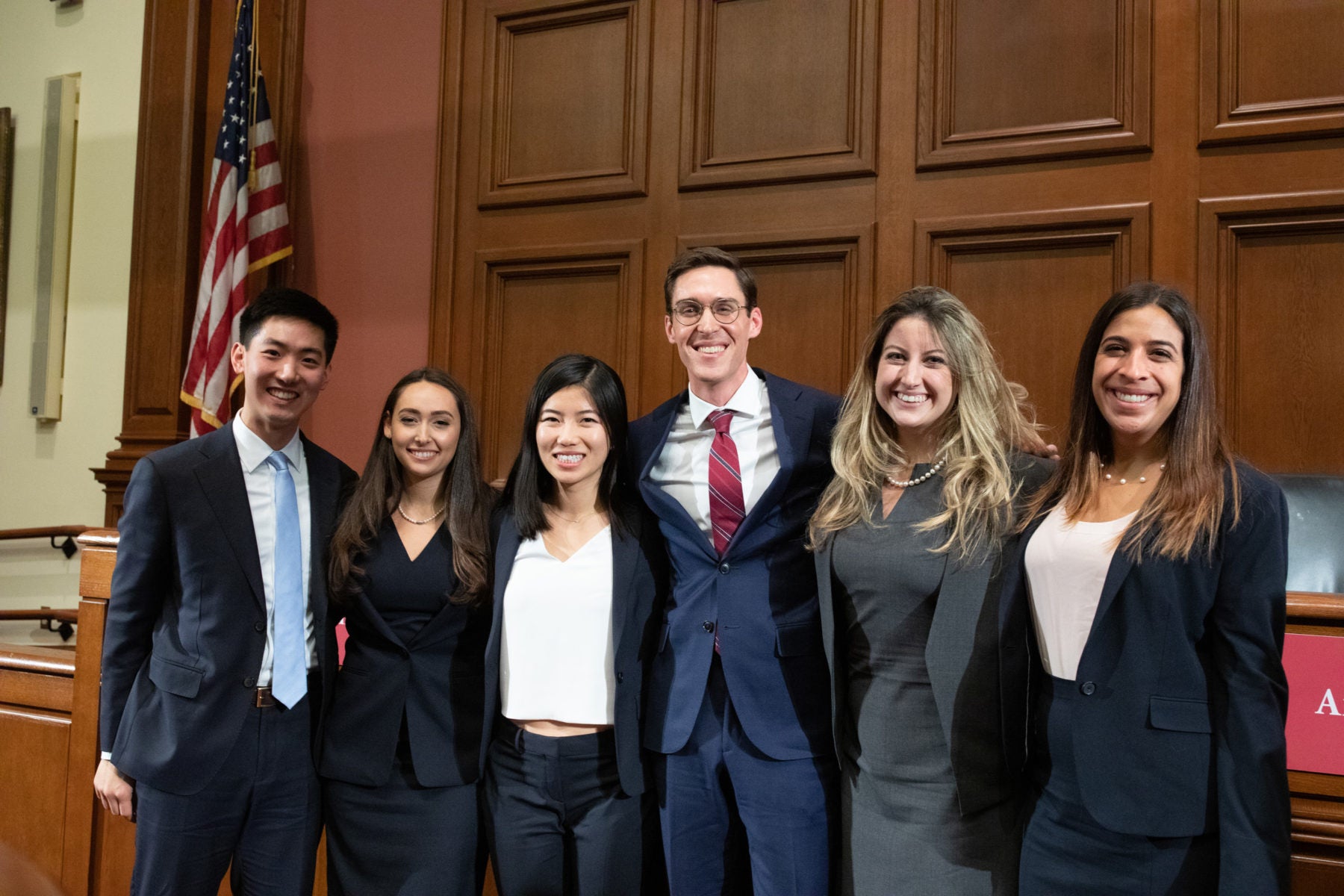
In a dramatic moment during the oral arguments, the petitioners’ oralist Mikaela Gilbert-Lurie fainted mid-way through her response to a question from Judge Garland regarding the rationale of prioritizing placement of a child with a different tribe in another area of the country.
For several minutes the courtroom remained silent as team members and others assisted Gilbert-Lurie. Garland, visibly relieved when the student quickly recovered, quipped: “I withdraw the question.”
To a sustained round of applause, Gilbert-Lurie answered an emphatic ‘yes’ when asked if she wanted to continue with her argument and declined Garland’s offer of a brief recess. She returned to the podium and laughingly said, “Would you mind repeating the question, your honor?”
In announcing this year’s winners, Garland, who previously judged the competition in 2006 and 2013, lauded the finalists’ efforts to use oral argument as a discussion, rather than just a listing of points to get through. “Questions are not to be feared,” he said. “You have to determine what is bothering the judge so you can get to the root of the issue.”
Garland praised the finalists’ presentation of their argument as “masterful.” “We intentionally try to throw you off,” he said. “All four of you stayed the course, and wove your answers right back into your argument.”
Established in 1911, the Ames Moot Court Competition has showcased some of the most talented oral advocates to attend HLS. The competition takes place in three rounds, beginning with the Qualifying Round (held in the fall of competitors’ 2L year), followed by the Semi-Final Round (held in the spring of competitors’ 2L year), and culminating in the Final Round (held in the fall of competitors’ 3L year).
For more on the history of the Ames Moot Court Competition at Harvard Law School, including case summaries and briefs, visit the Board of Student Advisers website.
For photos, video and other coverage of the competition you can also browse the Ames Moot Court Competition archives on the Harvard Law School website.
